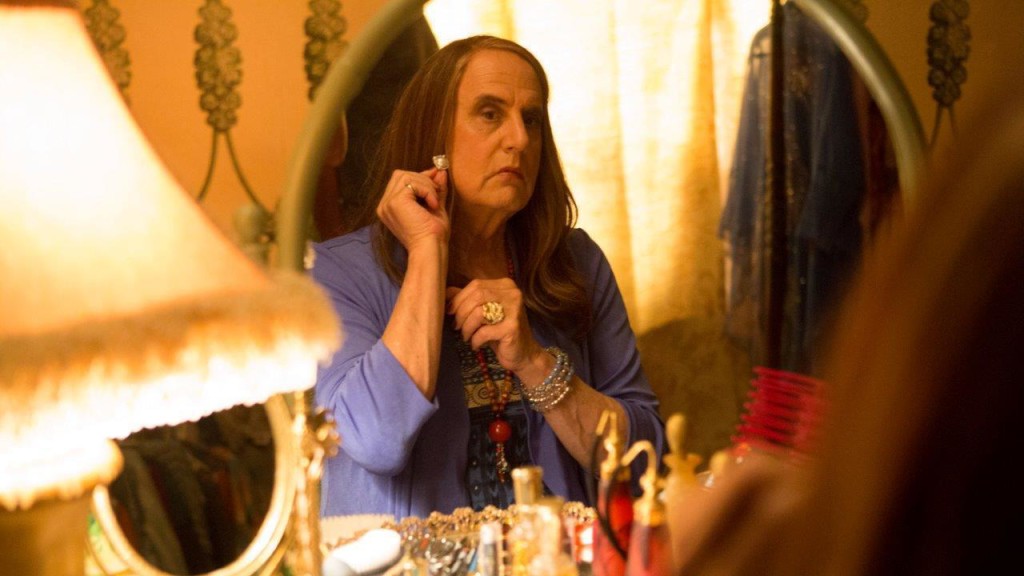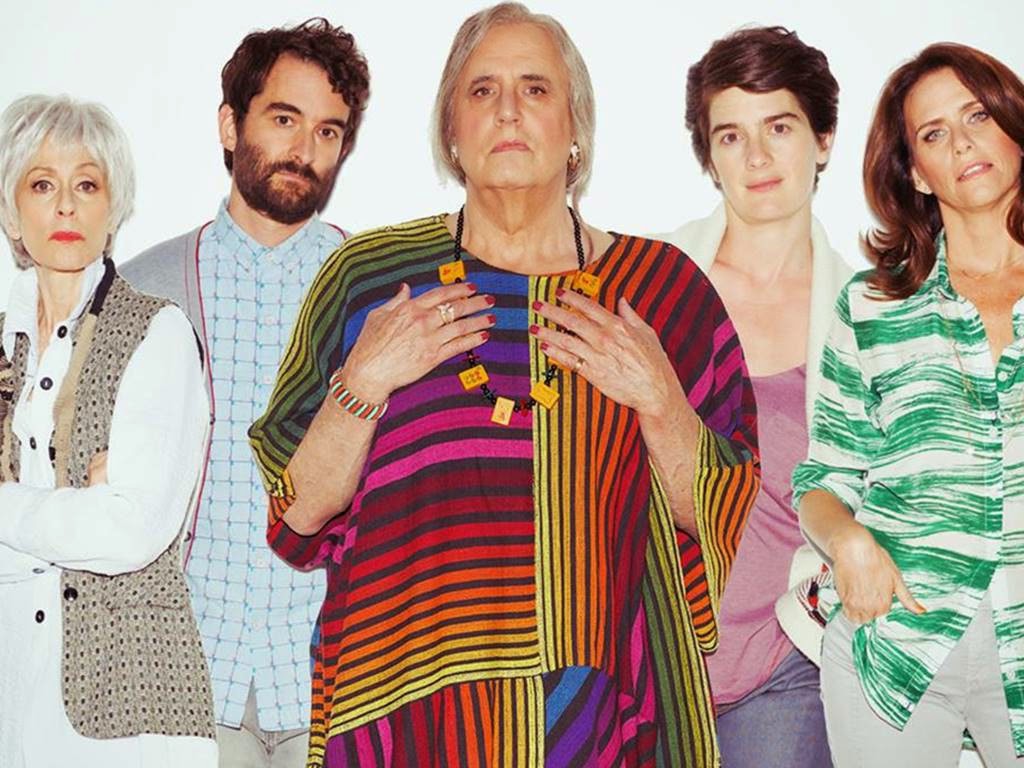My favorite part of winter in Maine is the excuse to hibernate, make soup, dig into my pile of unread books, and, best of all, binge on online shows, which is how I kicked in the New Year.
After reading rave reviews of “Transparent” in The New Yorker, I decided to give it a chance. I was instantly smitten with this new Amazon Prime series about a man, Jeffrey Tabor of “Arrested Development” fame, who, at almost 70, comes out to his family as a woman.
I loved the funny, squabbling family dinners, hilarious sibling exchanges, the poignant struggles of Maura, formerly Mort, as she boldly takes on female dress to the puzzled responses of family and close friends. I didn’t expect to be so entertained by Season Two’s wickedly funny send-up of Feminism.
“Transparent” is written by Jill Soloway, a youngish Feminist screenwriter who deliberately chose a focus on the “female gaze” to counter the often prevailing “male gaze.” Additionally Soloway insisted on an all female production crew she titled, “Topple” for ‘topple the patriarchy.’
Major themes of the series are shifting gender roles, not just with Maura, but also with her two daughters, Sarah and Ali, who both leave men for women, but not necessarily with successful outcomes. Soloway, while championing feminism, doesn’t make relationships between women look easy, although one of the funniest lines in season two is when Ali explains to her older sister, Sarah, why she entered a relationship with a women: “I couldn’t have real emotional intimacy with someone who hadn’t suffered under patriarchy.”
Maura’s up and down road as a trans woman may be one of the truer pictures of this experience depicted on screen. At her initial coming-out Maura is ecstatic, relieved at not longer having to keep her identity a secret, but along the way she finds acceptance as a trans woman isn’t as easy as she had anticipated.
This is poignantly illustrated in a restaurant scene where Maura’s having lunch with two trans women, one of whom has had a sex change operation. An older male customer comes to their table, drawn to the beautiful trans woman, and openly flirts with her. Maura recognizing the man, as someone she’s known from her life as Mort, addresses him. In response, he openly ridicules her. In spite of the hurt feelings that register on her face, Maura holds her head high, offering a calm, dignified response.
Maura’s eccentric LA Jewish family, which includes a son and ex-wife (brilliantly played by Jay Duplass and Judith Light) find their own individual ways to come to terms with Maura’s transformation. Stella, the ex-wife, helps Maura choose flattering dresses. Ali resolves her confusing by calling Mort, “Moppa” –a blend of Mort and Poppa.
One of the funniest bits in the series is when Ali and Sarah invite Maura to join them at a women’s music festival patterned after the infamous lesbian Michigan Womyn’s Music Festival, which just ended after a 40 year run. Because penises were taboo at the festival, trans women were not welcome. (I remember hearing of a woman who brought her infant son because she was nursing him. When his sex was determined, the nursing mother was evicted.) When Maura learns of the no trans woman policy, she makes an abrupt exit before she is outed: a cliffhanger for Season Three, leaving the viewer pondering how not just Maura, but how all the neurotic Pfeffermans will fare in their continuing quests for love.



